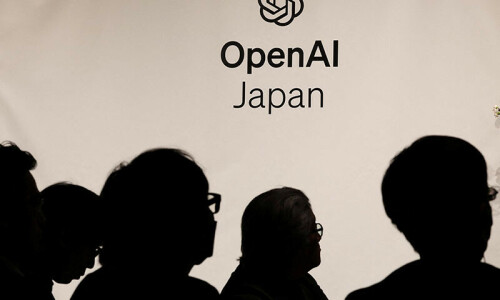
Happiness radiated from the faces of the villagers as Sarhad Rural Support Programme chief executive officer Shahzada Masoodul Mulk announced the use of the proceeds of a Kalash valley hydropower station on the local children’s education.
“Aside from operation and maintenance costs, all the project’s financial gain will be spent on educating your children so that no one is constrained to leave studies merely due to poverty,” he announced after inaugurating the 600 kilowatts Bumburate power station to a thunderous applause.
The villagers mostly mired in abject poverty were happy first at the electrification of their houses and then at the SRSP bearing the children’s schooling expenses.
Electricity has the potential to contribute to the people’s economic well-being by raising their living standard, says SRSP programme manager Tariq Ahmad
Funded by the European Union under its Programme for Economic Activity and Community Empowerment (Peace), the programme is meant to help the government reduce the negative impact of economic deprivation, poverty and social inequality in the areas affected by security crisis and natural disasters, and to turn the situation into an opportunity to build and empower local residents.
Most areas in Malakand division have seen a series of both natural and man-made disasters in quick succession over the last decade in the form of militancy and flash floods, which nearly crippled the local economy.
Of late, the European Union rushed to the help of the people of Malakand division with €40 million funding for their economic recovery and rehabilitation.
It sought to execute the initiative through the SRSP due to its vast experience in the ‘bottom-up community-driven development approach.’
SRSP district programme manager Tariq Ahmad told Dawn that in the context of Chitral, the top most priority was given to the hydropower generation across the district, which had a fabulous yet unexploited potential.
According to him, electricity is the primary source to bring about a positive change in the lives of the people and that it has the potential to contribute to their economic well-being by raising their living standard.
For that reason, a large chunk of the Peace funding was earmarked for hydropower generation as a result of which work on 23 power projects meant to generate 7.273 megawatts electricity are in progress.
A network of micro-hydel power stations will be in place across the district under the programme to electrify houses and buildings.
Spread over 14,850 square kilometers, Chitral is the largest district in the province. The Chiantar glaciers in its Baroghil area are the origin of the Kabul River.
Each of Chitral’s 36 valleys has a stream running across it, which has the potential of hydropower generation due to the slopped topography.
As showed by the statistics available with a nongovernmental organisation, only five percent of the total population had access to electricity in early 1980s when the people had yet to begin generation of hydroelectricity for own consumption.
The SRSP has established a full-fledged hydel power generation wing to electrify more and more villages in the district.
According to the SRSP district programme manager, the fast depleting oak and deodar forests can be saved by hydel power generation only.
He said the number of households electrified by small hydropower units across the district was around three times the number of those electrified through the national grid.
Mr. Ahmad said once hydel power schemes were successfully executed under Peace, their ownership with control over earnings and maintenance would formally be transferred to the respective community institutions.
He said it was in the best interest of the communities to encourage and develop a reliable income stream and that during that course, the programme would introduce the concept of establishing the hydel power stations as social enterprises.
“The SRSP will promote the social enterprise concept and provide intensive support for the purpose in the initial stages to gradually allow the communities to assume such a responsibility. The project staff will provide the necessary technical support to them. The social enterprise system will entail the development of a business plan for the profits and possible losses with inputs from the community organisations so that they can keep track of the funds generated every month and costs incurred on operations and maintenance of the units for the money’s use for ‘social investments’ by the respective communities,” he said.
The programme manager said the role of his organisation would be to facilitate the process of creating a supportive environment for long-term sustainability of such power units, while the communities would decide about the billing system and how to use the funds generated by them.
Published in Dawn, July 10th, 2016












































Dear visitor, the comments section is undergoing an overhaul and will return soon.